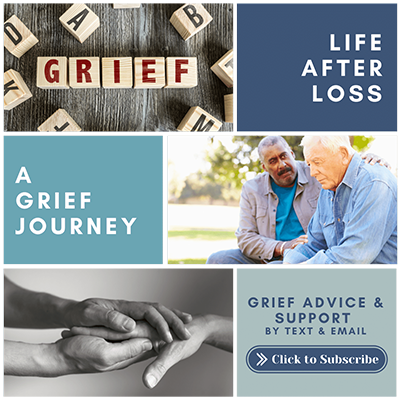When a loved one has Alzheimer's, the grieving process typically starts long before the person actually passes away.

When a loved one has Alzheimer's, the grieving process typically starts long before the person actually passes away. Grieving can begin the day you learn of the Alzheimer's diagnosis. Or you may notice feelings of grief as your loved one begins to lose their memory and starts to struggle with daily tasks.
As the person with Alzheimer's capacity declines, feelings of loss can become more profound. Even though you want to do everything you can to slow down the progression of the disease, there is often not much you can do. This can make you feel hopeless or out of control.
It may feel like your grief is a never-ending rollercoaster, and your feelings will likely be unpredictable. You may feel angry one day and sad the next. There will be moments of happiness in there too, and that may even cause feelings of guilt for feeling happy while a loved one continues to suffer.
After your loved one passes, you will grieve and mourn again. However, it is common for surviving spouses and family members to feel a sense of relief that their loved one is no longer suffering and that this chapter in their own lives has closed. Unfortunately, this can also lead to survivor’s guilt because you feel guilty for feeling relieved. Know that these feelings are normal. They do not make you a bad person or mean that you didn’t love the person enough.
Ways to Manage Grief
Face your feelings. Instead of trying to hide from your feelings or push them aside, embrace them. Know that sadness and grief will be a part of your life and that this is ok.
Know that many people will not understand your grief. Many people think grief happens when someone dies, not when that person is still alive. So they may not realize you are grieving while your loved one is still alive.
Make sure you talk to someone and share your feelings. This may be a trusted friend or family member or even a counselor or therapist.
Take care of yourself. It may be hard to muster the energy to socialize at this time, especially as you need to spend more time caring for your loved one. Spending time with friends can help you to be a better caregiver. Try to carve out time for things you enjoy and that bring you joy.
Give yourself time to heal. It would be nice to be able to know exactly when your grief will end, but that is impossible to know. It will be a long process. Know that eventually your grief will start to subside, and you will start to feel happy.
.jpg)
